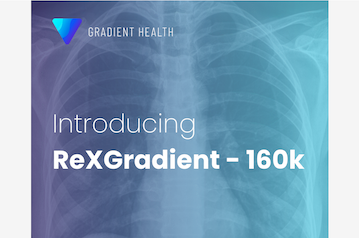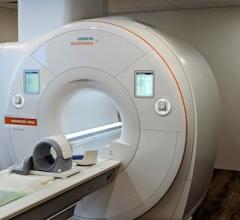
May 01, 2025 — Researchers from the Rajpurkar Lab in the Department of Biomedical Informatics at Harvard Medical School and Gradient Health have launched ReXGradient-160K, the largest publicly available chest X-ray dataset in terms of patient size and site number to date. This dataset features 160,000 anonymized radiological studies from over 109,000 unique patients across 3 U.S. health systems, including 79 medical sites, offices and clinics, representing a significant leap forward in medical artificial intelligence.
“ReXGradient-160K should help address critical limitations in existing medical imaging datasets,” Xiaoman Zhang, postdoctoral fellow from Rajpurkar Lab said. “Because it includes more than 160,000 studies from nearly 100 medical sites, the dataset offers a chance to design AI systems that work across different clinical settings and test whether these tools perform reliably across the board.”
As the demand for radiological expertise continues to grow, AI carries the promise to optimize healthcare. ReXGradient-160K aims to provide a foundation for developing more sophisticated and reliable AI systems that can support radiologists worldwide.
The new dataset addresses an urgent unmet need to develop high-quality, representative medical AI models that improve diagnostic accuracy in abnormal cases, enhance cross-institutional model robustness, and support human-AI collaborative workflows in clinical settings. The dataset complements the ReXrank benchmark (https://rexrank.ai), offering researchers a robust platform for evaluating AI performance in medical imaging.
The dataset provides researchers and developers with a rich resource for developing and evaluating AI systems for medical imaging and automated report generation. The dataset includes a balanced demographic representation, with patients from various age groups and a nearly equal distribution of male and female participants. This diversity is critical to ensure that AI models trained on the dataset can perform reliably across different patient populations. Key features of the dataset include a comprehensive split of 140,000 studies for training, 10,000 for validation, and 10,000
for public testing. Each study includes a radiological report which contains four sections: Clinical History, Comparison, Findings, and Impression. This detailed approach gives researchers access to rich, contextual information alongside the medical images.
Researchers and developers can access the dataset for free through Hugging Face. This open-source approach aligns with the project's goal of accelerating medical AI research and improving healthcare technologies.
The effort is a collaboration between the Rajpurkar Lab at Harvard Medical School's Department of Biomedical Informatics and Gradient Health, a medical technology company dedicated to advancing research through accessible, high-quality datasets.
The Rajpurkar Lab at Harvard Medical School's Department of Biomedical Informatics is committed to pioneering advanced medical artificial intelligence, with a mission to scale medical expertise globally through innovative AI solutions.
Gradient Health is a medical technology company providing foundation model-scale medical imaging datasets to accelerate equitable health innovations. To learn more visit: gradienthealth.io


 February 10, 2026
February 10, 2026 









